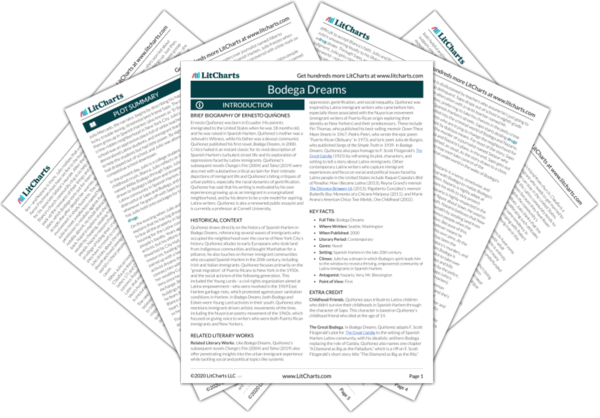AI ToolsNew
Tools to make learning and teaching easier
|
Previous
Book 2, Round 8
|
Bodega Dreams: Book 2, Round 9 Summary & Analysis |
Next
Book 2, Round 10
|


Upgrade to unlock the analysis and theme tracking for all of Bodega DreamsBodega Dreams!
Get LitCharts A+